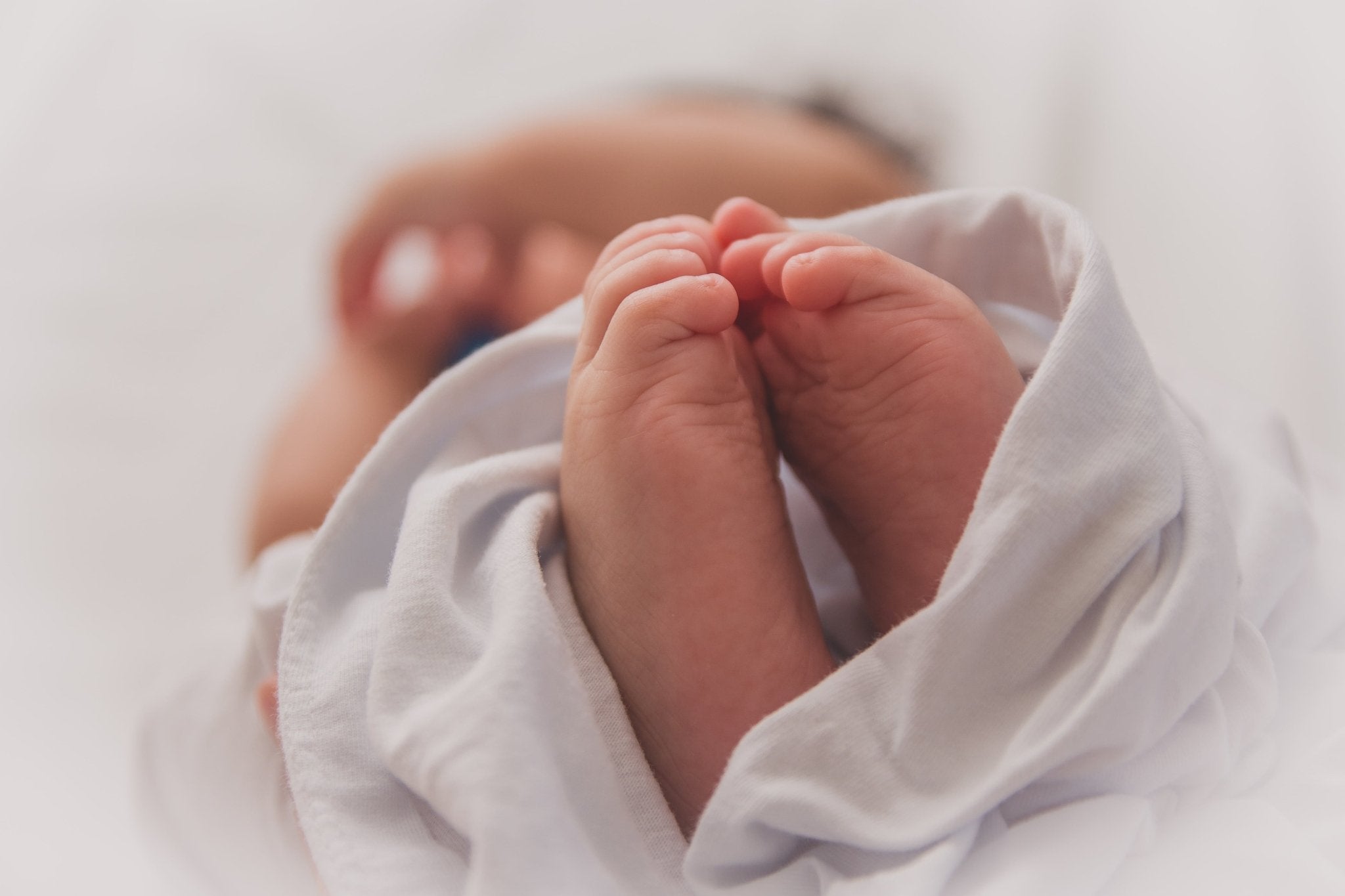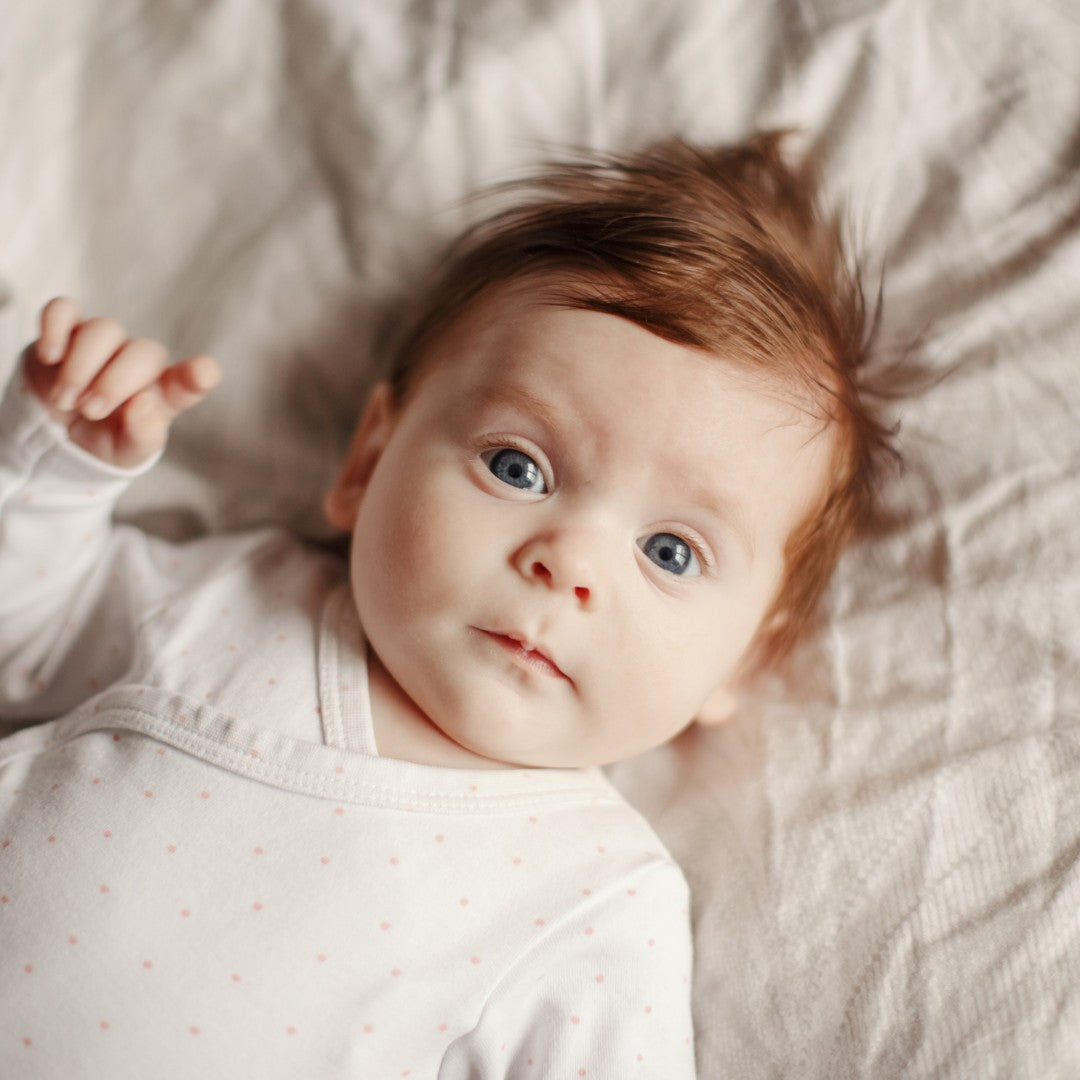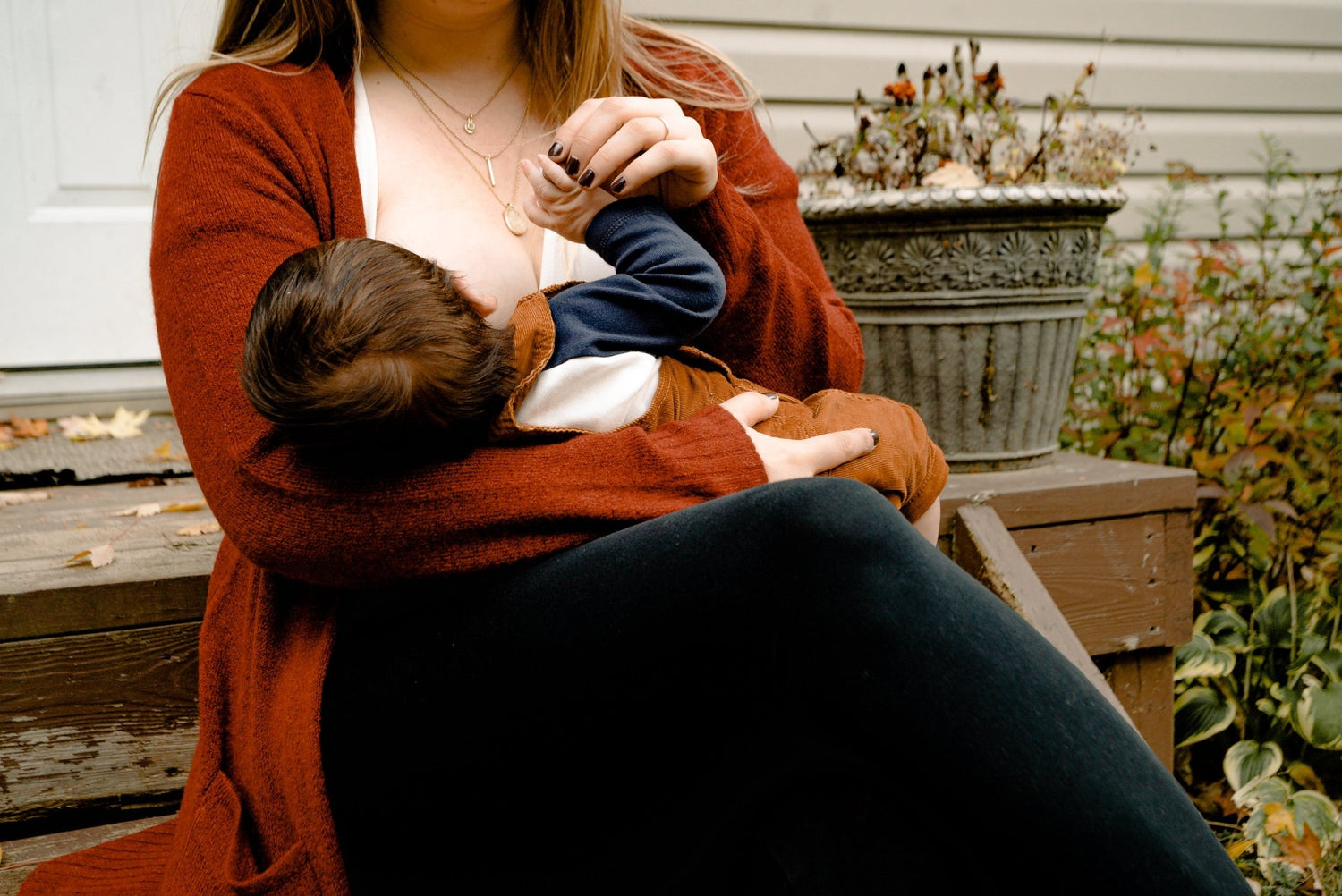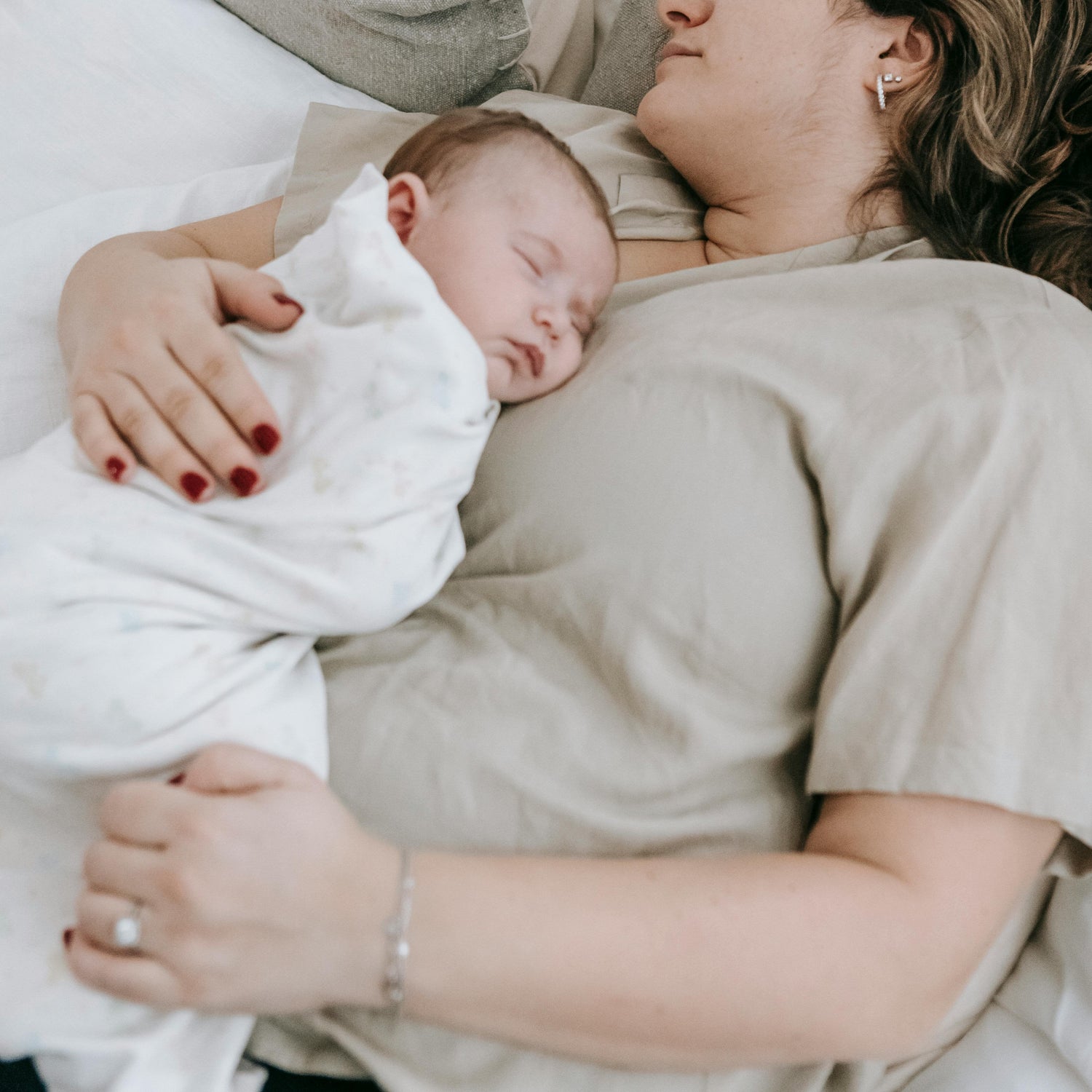Safe baby sleep: Avoiding sudden infant death syndrome
This article is about Sudden Infant Death Syndrome. A topic that new parents are reluctant to think about. Still, it is an important topic to know about. We will therefore define the term for you and show you ways of preventing this in the best possible way.
|
Table of contents:
|
1. What is SIDS (sudden infant death syndrome)?
Sudden Infant Death Syndrome (SIDS) is the unexpected death of healthy babies, especially in the first 12 months, after which the risk drops rapidly. The highest risk is in the period from the second to fourth month of life, with boys being affected a little more often than girls. The older the children get, the lower the risk.
The cause of such a death is largely unknown to this day. The baby is expected to stop breathing for inexplicable reasons. The various studies show on the one hand that this could result from a malfunction in the brain, others think that it results from an immaturity in the respiratory function. On the other hand, a heart condition could also be the cause. B. Children who fall into a too deep sleep. These are possible causes that occur again and again in connection with sudden infant death syndrome.
In recent years, the number of sudden infant deaths has steadily decreased. In Germany in the 1990s there were still around 500 to 1000 children per year, but since the 2000s it has only been 150 to 250 children per year. On the one hand, thanks to modern medicine, child deaths can now be diagnosed more clearly. Another reason, however, is also quite clear, that there are appropriate recommendations on how to counteract sudden infant death syndrome.
2. Prevent sudden infant death syndrome

2.1. Supine positions
The baby should always be placed on its back when sleeping. This prevents babies from sleeping on their stomachs or sides, which could lead to suffocation.
 2.2. Smoke free
2.2. Smoke free
During pregnancy, but also afterwards, it is important for babies to grow up in a smoke-free environment. That is, in the premises where the baby is staying, it is absolutely forbidden to smoke. But even the smoke that sticks to the clothes could be risky. So give up smoking altogether.
2.3. Proper bedded
Proper bedded
This rule contains several hints. These are all intended to prevent the risk of suffocation or respiratory arrest. On the one hand, it means that the child should sleep in a sleeping bag and that blankets, pillows or cuddly toys/cuddly towels have no place in the cot. In addition, nests should be avoided so that the air can circulate well. Finally, make sure there is sufficient ventilation, the room temperature should be at best 18° and the child should not be wrapped up too warm. Children usually report when they are too cold, but often not when they are too warm. Overheating is therefore also a risk. In the first 12 months, it is also advisable to put the crib in the master bedroom. The parents always have an eye on the child and can quickly check the sleeping position and breathing.
Unfortunately, the family bed speaks against preventing sudden infant death. Studies clearly show that the risk of cot death is increased when the child sleeps in the same bed as the parents. Especially if one of their parents is a smoker.
3. So much for the theory
Unfortunately, in the first few months I was almost obsessed with sudden infant death syndrome. However, this only started at about six weeks. Because at the age of six weeks Leon started to sleep through the night - but didn't last long.
Because he no longer called in regularly to breastfeed or change diapers or or or, I really panicked. I really woke up 1000 times during the night and had to see if he was still breathing. At the beginning he was in bed with us and even on top of me, but over time he slept in his crib, also with a sleeping bag, or at some point we also had a camper van and I really made sure that he was sort of following the rules sleeps, but I was afraid. Personally, I believe that cot death is the result of a malfunction in the body and is unavoidable when it should be. Everything else, such as suffocation, etc. has a cause and is therefore not sudden infant death.
Out of my panic, I bought a device that you put on the diaper and that measures your breath and sounds an alarm if you stop breathing. There are mattresses like that, with the same function. However, I thought, with this device I am not tied to a sleeping place. So, for someone as panicky as I am, this device was actually a relief. I could finally sleep peacefully again. At some point, however, the reliability of the device decreased and there were more and more false alarms. And I can tell you one thing, you really almost get a heart attack when that thing goes off and you think your child isn't breathing anymore. We then changed the batteries from time to time, but the false alarms kept getting worse and worse and I woke Leon up every time. So at some point I banned the device, but then Leon was already nine months old and the risk of sudden infant death was rather low. When the breath control device worked well I loved it, eventually I hated it. Looking back, I'm not sure if I would do it that way again. I think that when I have my next child – at least as of today, I think so – I won’t have such a device in my house anymore. Nevertheless, I can recommend something like this to really panicked parents, possibly also another solution for breath control, because it simply takes away the fear.




